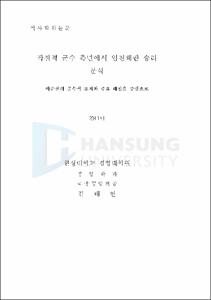작전적 군수 측면에서 임진왜란 승리 분석
= Analysis of the Victory of Imjin War from Operational Logistics Point of view: Focused on Sea Battles and Logistic Measures of General Yi Sun Sin
- Type
- Thesis
- Alternative Title
- 이순신의 군수적 조치와 주요 해전을 중심으로
- Advisor
- 김선호
- Department
- 경영대학원 경영학과
- Issued Date
- 2011
- Publisher
- 한성대학교 경영대학원
- Files in This Item:
-
-
Download
 000001095105.pdf
기타 데이터 / 4.46 MB / Adobe PDF
000001095105.pdf
기타 데이터 / 4.46 MB / Adobe PDF
-
Items in Repository are protected by copyright, with all rights reserved, unless otherwise indicated.